|
Photography by Eric Fischer
Comedian, actress and writer, Erica Rhodes got a very unique start in show business. By age ten she was voicing the on air conscience of Garrison Keillor for A Prairie Home Companion, staying on through the years and eventually even writing skits for the show, performing on stage with the likes of Meryl Streep and Martin Sheen. Rhodes found in Keillor a mentor, "He is an example of someone who built everything himself. It's all his. That inspired me to go out and write and make my own stuff" Erica says, of how that time in her life helped to shape and inform who she is today. "He inspired me to never give up" Rhodes continues, "when I first started doing stand up, I had one terrible show in NYC. I don't think I got a single laugh. He asked how it was and I said, "Horrible! I bombed." He said, "Well. Go to bed. Get up and do it again tomorrow." He's always believed in me. Whenever I have hit rock bottom in my life, he has said, "Come do the show." He taught me more than I can probably even comprehend myself. He also always knew I was funny, before even I did." For many years wanting to be a "serious actress," Rhodes says she realized that she "never had a voice for drama or theater. More and more people seemed to think I was funny." Her humor is often dark but incredibly true to who she is. "I don't usually like to exercise" she jokes on stage, "but I do spend a lot of time running from my past." "I have a lot of darkness in me," Rhodes says, "but it's in direct opposition to my high voice and upbeat-seeming persona." Through comedy Erica finds a way to embrace and combine both sides of her self, the outward, the inward and everything in between. In a recent valentines day post on her website Erica offered this advice to the lovelorn, "If you’re single just think that most likely someone loved you somewhere sometime. And even if it’s a distant memory, it happened. You loved someone. They loved you back. And isn’t that a miracle considering how many people you meet and don’t fall in love with?" Sage advice, and a case in point that Rhodes is an incredibly gifted writer who also happens to be at work on a novel. Comedy is as much about processing our experiences and our past as poetry or painting, "Humor is a real coping mechanism that is almost a matter of survival... I do believe a lot of comedy comes from a dark place at first" Rhodes reiterates. Rhodes has made recent appearances on ABC’s Modern Family, Fox’s New Girl, IFC’s Comedy Bang Bang and Comedy Central’s @ Midnight and Why? With Hannibal Buress. She co-hosts Bil Dwyer’s Stardumb!, a game and talk show comedy hybrid that has sold out three times at San Francisco Sketchfest, and stars major guest comedy players like Zach Galifianakis, Simon Helberg, Oscar Nunez, Adam Scott, Mike White, and Maria Bamford. Erica may be fast rising in the comedy world, but "I am still trying to find my voice too " she says. "I know I have miles and miles to go. I know it takes years to find. We all need to be patient! You can't be great overnight, just like you can't be a great cellist or dancer overnight." AHC: At age ten you were working alongside the great Garrison Keillor on A Prairie Home Companion, few people have a better story as to how they got their start. Tell us about that and how it came to be? Erica: Well...here's the long version: My Mom started it. She is from the same hometown as Garrison (Anoka, Minnesota) and is a violinist in Boston with the Boston Pops and also freelances. She helped found an orchestra there called the Pro Arte Chamber Orchestra and had the idea to ask GK to do a fundraiser for the orchestra. She wrote to him and he agreed to it. They got along well and then my Mom introduced him to my aunt. My Aunt and he started dating (now they are married) and one time they came and saw me dancing in the Nutcracker (as a "party girl") and we all went out to dinner that night. I said a few things and GK looked over sort of surprised at my tinny little cartoon voice. The next day, my Mom said he wanted to put me in the show. I played his conscience. We had one rehearsal. He gave me a lot of lines and I had to stand on a box to reach the mic. I shared a dressing room with Allison Janney. I had no idea what it was or what I was doing. But I don't remember feeling nervous at all. I was a very shy child but always comfortable performing. Then I appeared on the show for years after that on many occasions. I basically grew up doing it. AHC: You've said that Keillor became a mentor to you, as you worked with him on air for many years, what kinds of things did you learn from him that have helped to shape and inform who you are today? Erica: So much. He is an example of someone who built everything himself. It's all his. That inspired me to go out and write and make my own stuff. I produce a comedy/variety show now that is very inspired by Prairie Home. He at one point suggested I do a one woman show. I didn't. But, stand up is very close to that. He also is a big reason I moved to LA. He had me do the show out here at the Hollywood Bowl and then he took me on a tour of LA, selling it to me as a place I should probably be. He also inspired me to never give up, because when I first started doing stand up, I had one terrible show in NYC. I don't think I got a single laugh. He asked how it was and I said, "Horrible! I bombed." He said, "Well. Go to bed. Get up and do it again tomorrow." He's always believed in me. Whenever I have hit rock bottom in my life, he has said, "Come do the show." Then he had me start writing for the show too. He taught me more than I can probably even comprehend myself. He also always knew I was funny, before even I did. AHC: While on A Prairie Home Companion you had the opportunity to work with Meryl Streep and Martin Sheen, what were those experiences like and were you star struck or nervous at all beforehand? Erica: I sort of regret never even getting a picture with Meryl Streep. But I was so set on being "cool" and NOT starstruck that I probably overcompensated a little. But she was actually the nervous one. She wasn't used to all of the last minute edits GK did right before the show. She was very kind to me and said I did great after. I wish I had tried to talk to her more, but again, I was quite shy. I think I was about 22 when I did that. And Martin Sheen is SO sweet and easy to be around. I wasn't at all nervous with him either. He would go up to everyone and say hello and chat. I think I got to do the show twice with him, which was cool. Really genuine nice guy. AHC: Did you develop a deeper appreciation for the world of radio that you might not have had had you not been a part of something as iconoclastic and nostalgic as A Prairie Home Companion? Erica: Of course. But I can't say I have really explored beyond PHC. That was radio to me and always will be. I don't really know much about the other shows out there. I think live radio with an audience is what I appreciate most. But I don't know any other shows quite like it which is why I think it had such a following for over 45 years. AHC: When did comedy first begin to feel like the thing you were meant to do? Erica: For awhile I really thought I would be a "serious actress," but when I studied acting at David Mamet's school, he told me "If you don't fix your voice, you'll never have a career!" I never had a voice for drama or theater. More and more people seemed to think I was funny. And for the longest time it really annoyed me. I pictured myself doing really dark, tortured, intense roles. Makes me laugh to even think about now. I have a lot of darkness in me, but it's in direct opposition to my high voice and upbeat-seeming persona. I would say, when I started doing stand-up 4 years ago, is when I finally started to accept myself as a comedic personality. AHC: Who have been some of the major comedic inspirations and influences for you, and has that list changed or evolved over the years? Erica: Maria Bamford was my first big influence comedically. But I also love Ellen DeGeneres' early stuff as well as Woody Allen's early stuff and Mitch Hedberg who was just a brilliant joke writer. The list hasn't changed much because I haven't been doing stand up that long at all! But, I definitely appreciate the cleaner comics who are smart writers with very unique POVs. AHC: What is your writing process like, talk us through how you create the material, do you keep notes and expand ideas from a collection of observations? Erica: I don't really have one process. I do a lot of weird things. I do a lot of free-writing where I just try to empty out the junk in my brain that is preventing new ideas from forming. But I find my best ideas happen when I am not "trying" to think of something. I'll be driving and suddenly something will pop into my head and I have to make sure to write it down immediately or I'll forget. Now I am also trying to write more on my feet while performing. That's what the "pros" seem to do. They just talk about an idea that's important to them and keep talking until they hit on something funny. I want to do more of that! It's more fun to discover something at the same time as the audience. It's a really special moment when that happens, because they can feel that it's happening in front of them and surprising both of you. AHC: In your stand up you talk about your Dad having MS and being in a wheelchair, and the jokes are really funny (much of your humor being dark comedy,) still it must have been a difficult situation. Often it's said that comedians work from a place of pain or vulnerability, and that the humor/comedic crafting, like writing a song or poem or choreographing a dance, painting, sculpting, become a way to work creatively with our lives and make something meaningful out of who we are and where we've been, have you found that to be the case and is that at all how you experience and process comedy personally? Erica: Yes. I think that when you are really dealing with something difficult, humor is a real coping mechanism that is almost a matter of survival. I have watched my Dad use humor my entire life to lighten the impact of his illness on himself and our family. And that's the case with anything difficult. I really do think humor is a release that comes from a feeling of discomfort first followed by the relief that we can also laugh at it. Most challenges I have faced, I later try to see what could be funny about it. And people dealing with those situations want to be able to laugh at it. My Dad wants to laugh at himself and his illness. And so when audiences hold back on that joke for fear of it being "offensive" or not PC, I actually get angry, because it's taking away HIS power if we can't laugh at it. And that's not fair to him. But yes, I do believe a lot of comedy comes from a dark place at first. At least a lot of the comedy I enjoy. AHC: In addition to acting and comedy you were also a dancer and a cello player at one point, and your mother also was a musician. Has dipping your toes in all of these different art forms/worlds and growing up with an appreciation for them colored how you approach what you do now? Erica: Definitely. I am very familiar with the discipline necessary to pursue a life in the arts. When I did ballet, I was dancing for hours every day. When I did music, I practiced my cello 5-6 hours a day. I have always been really committed when I decide to do something. But I was also competitive and wanted to be better than I was at both of those pursuits. Comedy takes enormous dedication and discipline too. But I don't have to lug a big cello around or have bloody, deformed toes! All I need is a microphone and an audience. Way easier. But not! It still takes enormous focus and discipline. Also, I have year and years of performing under my belt. I actually feel more comfortable on stage now than I do in real life. For better or worse. AHC: You've said that you don't understand why anyone would want to just act and do nothing but acting, and that it is through comedy that you've found a kind of extra freedom that isn't really there in acting when nothing else supplements it, monetarily and creatively, can you talk a bit about that? Erica: Yes. I mean, don't get me wrong. If I was offered a big movie tomorrow, I would gladly focus on that and love every second of it. But I am a creative person at heart. And creative people don't feel fulfilled unless they are MAKING something. Actors are just pawns in someone else's vision. I think I feel best when I am creating something. And stand up allows you to constantly be creating and exploring and writing. I am also a performer tho, so I don't think I could just be a writer either. I need the two things combined which *POOF* is standup! AHC: You have a great quote which reads: “I’m trying to be less narcissistic. I’ve been letting other people take my selfies for me.” I think probably none of us can help it in this day and age but how do you practice self awareness around how you use technology? Are there moments when you take a step back and realize you're getting too caught up or lost in something that isn't necessarily feeding you creatively? Erica: Thanks! That's an old joke that doesn't seem to work anymore. Maybe because I don't like it anymore. Yes.The internet of course is dangerous because it gives you the illusion of productivity when you can waste hours doing nothing. But, it's also unavoidable. I think everyone just has to find a balance that works for THEM. I am grateful that I am forced to go out and be around people when I am performing. And that always feels real. Performing in front of real people in real space and time. I don't think anything will ever totally replace that feeling of real connection. At least I hope not! AHC: Have you had any desire/inspiration to write your own scripts, either for television shows or movies? Are there stories/muses that have been floating around in your mind that you just haven't pinned down on paper yet? Erica: EVERYONE KEEPS ASKING ME THIS!!! Yes. I have some stuff in the works sort of, just like everyone in this town with a script! I think of ideas all the time. And then forget to do them. Right now I have a weird commitment to myself to finish a novel I wrote half of that might be a total piece of trash, but I want the feeling of finishing it anyway. I also write short films all the time that I also haven't shot. I have one I just finished though that I am definitely going to shoot next week because it's super simple and just one scene. But yes, I know I should write a show or whatever. I'm sure I will eventually. AHC: If you were to write a sitcom show for yourself, what would it be about and who would you cast in it? Erica: Well, me of course and my life. I don't really want to get into this, because it could be in the works of actually happening one day and I don't want to give anything away! I'll tell you what it won't be. It won't be about a stand-up doing stand-up in the show like SO many other shows! I do NOT want to play a comedian in my show. But that's all I really know for sure, to be honest. So far. AHC: The worst thing for a comedian must be when an audience just isn't on the same page or wavelength as the comic, has this happened to you and how have you handled that kind of situation? Have you ever been heckled at shows? Do you turn it back on the audience and create-improvise off their negative energy in the moment? Erica: Of course. It happens all the time. Sometimes I'll go to crowd work when that happens, because sometimes they just want to be talked TO instead of AT. I have been heckled, but almost never mean ones, just annoying ones who think they're helping the show somehow. Yeah you just have to fight to get them. It's harder, but it's your job. I still need to get better at winning an audience back if I lose them. It's a battle sometimes! And sometimes you just never get on the same wavelength for some reason no matter how hard you try. But whatever, you move on to the next show and never have to see them again. Every show is different. Every audience is different. That's what makes it fun! AHC: Do you have any words of advice for young comics starting out who are trying to find their groove, their voice? What would you go back and tell the younger you right now? Erica: I would tell the younger me to START STANDUP SOONER! I wish I started when I was 18 like so many other comics, but it took me longer to find it. I would tell other comics to not try to imitate other comics and to just be true to who YOU are. Talk about what YOU want to talk about. Let the audience come to you instead of trying to go to them. If it takes you longer to be funny, that's OK. Because at least you'll be true to yourself and have a real unique voice. Don't just go for laughs. Go for truth. Then find the funny later. And don't be afraid to fail. Comedians learn by failing in front of people. That's the only way to learn. It's painful sometimes, but just suck it up and fail as much as you can. And eventually you'll start to figure it out. There's no real way to teach comedy. You just have to dive in and get on stage and try stuff. But I am still trying to find my voice too. I know I have miles and miles to go. I know it takes years to find. So I guess we also all need to be patient! You can't be great overnight, just like you can't be a great cellist or dancer overnight either. AHC: Do you have any projects in the works or scheduled appearances-performances you'd like tell people about? Erica: My show, 'The Night Light Comedy Show' is the variety show I do the last Monday of every month. The next one is March 27th at Open Space with headliner Bobcat Goldthwait and special guest Allan Havey! It's going to be a great show! And I have shows all the time. I put some of them on my website: ericarhodescomedy.com and I am doing the Moontower Comedy Festival in Austin at the end of April.
0 Comments
Doldrums of Winter Last night the deer came out And were quietly crossing the road like thieves - I know this because of the holes they poked in the crust of the snow On either side of this black tar runway Their thin legs like pogo sticks spiked through the crust Like bullet holes ripped through the steel Of a flak jacket - Exhausting them. They are looking for water unfrozen, hemlocks uneaten They are evading coyotes and semis packed with logs And maybe even the boy next door with a gun - Poaching venison in the late February thaw Doldrums of winter. But this time the deer have made it across And no one knew, save me And the moon. In my dreams the deer felt me aid and abet them In their silent passage through my brain like a slave ship lost in a Cloudless sea of cold. 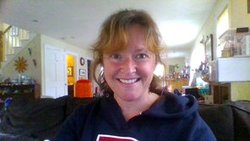 Bio: Elisabeth is a mom of two young boys living in Vermont writing her heart out, riding her horses and hanging on for dear life. She loves it when she gets the feeling that a poem just plain worked. It is as exciting as galloping on a horse. She hopes that her words can help others feel better about themselves. She knows reading inspiring poetry has helped keep her swimming above the waves. 3/16/2017 0 Comments Two poems by Mary Julia KlimenkoAditya Doshi
PROPHYLACTIC SONG She had some blue earrings he loved to put his hand between her legs and he admired her blue earrings were lost somehow and she understands the secret part it was because they were beautiful too beautiful for her they made him fuck her all the time and when the druggist told him they were the best kind because they weren’t too wet you know juicy well he wasn’t thinking about her blue earrings made her cry because they were lost and that bitch hid them from herself in her own sleep and he makes phone calls to her in the night and tells her not to wear stockings so she puts on the white silk ones he doesn’t call for three days she is considering taking them off LAST LIGHT She wanted last light something beautiful. He wanders in heat lightening. Imagining possibilities room for two release and rain she knows this problem can be fixed. Aware she may lose edges get sharp no magic fix no one grieves at the edge wild streams or a shoreline tall grass she doesn’t block his escape route she knows she has to wait become invisible dusk quiet and still until he returns. Bio: Mary Julia Klimenko obtained her BA & MA in Creative Writing from San Francisco State University where she taught Creative Writing for two years before returning to school to get a Master’s Degree in Counseling Psychology. She divides her time between her private psychotherapy practice and writing. She has a chapbook published by Spire Press, Source Vein, is published in numerous literary journals and has three limited edition books in print in collaboration with artist, Manuel Neri.
Photography by Stephanie Macias
"No one gets anywhere with out the help of someone else" writes Ali Holder, whether in the form of inspiration or actual help. "I am not my art, we are separate things" adds the Austin, TX singer-songwriter, of the many life lessons that she has learned along the way, including staying tough, being kind to yourself and others. Holder's sound has been described as equal parts outlaw country and Lilith Fair. Literary figures also loom large on her inspiration's horizon, the characters of Stephen King and the "word herding" of songwriter James McMurtry have all become central parts of her creative constellation. "If I did not have a creative outlet, I am not sure how that would have manifested itself in me. Being able to get all the darkness out of my hands and out of my mouth is truly life saving," Holder says of the healing, reparative power of music. And if you find yourself beginning to doubt the value of whatever it is that you do in this life time, learn to "let the universe surprise you" Holder offers, "over do it, under do it," but most of all just do it. Jump in, stay true to yourself, and live a life that makes you want to sing inside. AHC: What has this journey in music, so far, been like for you, the highs and the lows, and what life lessons do you feel you've picked up along the way? Ali: The lows have taught me how to be tougher and how to write more genuinely. The highs have taught me gratitude and the wisdom that no one gets anywhere with out the help of someone else - whether that be in the form of inspiration, for example, or actual help. I learned how to adapt - the only constant thing is change right? I often feel as if I am just behind the curve unknowingly grasping for what's next. It's seemingly better than being paralyzed by fear and inaction. So far this journey has taught that I have to continue to be tougher, continue to work harder, and continue to be kinder to myself and others. It's easy to become jaded, your attitude really is what dictates your perception and ability for happiness. Another lesson is that I am not my art. We are separate things. There are as many people who don't like my music out there as their are people who do - neither defines me as a person. It took me a long time to understand that. AHC: What first drew you to music and what was your early musical environment like growing up? Were there pivotal songs for you then that just floored you the moment you heard them? Ali: There was always music around my folks and my grandparents house. More Van Morrison and Beach Boys from my parents, more Willie Nelson and Johnny Cash from my grandparents. I saw a woman play Johnny B. Good note for note at a Jamboree in Newcastle, Texas when I was about 8 years old or so - it absolutely blew my mind to see a woman do that - that was a lightening bolt moment for me. Janis Joplin had a big influence on me growing up - Bobby Magee was the first song I learned to play on the guitar. Her voice is still a deep influence in my music. I try not to blow my voice out anymore but channel at least the passion she put forth in her singing. As far as songs flooring me - I can think of so many. Recently, 'The Rooster' EP by David Ramirez and 'Time of Ghosts' by Danish musician Ida Wanoe have been on repeat in my car. Both of those albums slay me. AHC: Do you remember the first song that you ever wrote or played? Or that first moment when you picked up a pen and realized that you could create whole worlds just by putting it to paper? Ali: The first song I ever wrote was about the sunset - north Texas still has some pretty hard to beat sunsets. It was something that felt very natural to me. I am not sure it was until the last few years that I really started to understand the power of the imagination and how you can really build your own empires within songs. AHC: Which musicians have you learned the most from? Or writers, artists, filmmakers etc? Ali: I have learned a lot about characters and intertwining themes from Stephen King. I have learned about herding words and descriptions from James McMurtry. My mind has been blown, vocally speaking, by Florence Welch (Florence and the Machine). I have learned the most practical knowledge from being a part of the Austin music community - like how to harmonize, how to be a band leader. I am so thankful to have an endless supply of schooling and inspiration from living in this town. For example, my roommate Little Brave is one of my songwriting heroes - she is a constant well of inspiration to pull from. AHC: What do you think makes for a good song, as you're writing and composing, is there a sudden moment when you know you've found the right mix, that perfect angle of light, so to speak? Ali: Even if I sit down and write every day I still sometimes need the strike of inspiration to get a good song. Whether it's a word or a verse - there is usually something that opens the channel to the rest of the song. I think a good song is a solid mixture of words, composition, instrumentation and mood. I edit while I am writing of course but I do edit very little once it's written - I will over time naturally sing something different (melodies or words) that eventually become the more mature version of the song. AHC: Do you consider music to be a type of healing art, the perfect vehicle through which to translate a feeling, a state of rupture/rapture, hope lost and regained? Does the writing and creating of the song save you in the kinds of ways that it saves us, the listener? Ali: 100%. If I did not have the creative outlet of not just writing but also singing the words to other people - I am not sure how that would have manifested itself in me. Being able to get all the darkness out of my hands and out of my mouth is truly life saving. If someone can relate or be saved by my songs the way I am saved by others - that is the goal. AHC: What are your fondest musical memories? In your house? In your neighborhood or town? On-tour, on-the-road? Ali: I am lucky to have so many. Just the general act of sharing time and space with people musically speaking is transformative and energizing. To create and express that creation with other people is a gift. In those moments you truly get a glimpse of what it might mean to have a purpose. I've experienced that both at home and on the road. AHC: When you set out to write a song, how much does 'where the world is' in its current moment, culturally, politically, otherwise, influence the kinds of stories you set out to tell? Ali: I tend to write from a very internal, emotional place. External things like culture, politics, etc. affect all of us over time whether we see/feel it or not but it is usually not what I write about directly. I am more directly influenced by literature and my own personal feelings/mishaps. AHC: Do you have any words of advice for other musicians and singer-songwriters out there who are just starting out and trying to find their voice and their way in this world? What are the kinds of things that you tell yourself when you begin to have doubts or are struggling with the creative process? Ali: Stop looking at social media. If you're using it to push/encourage yourself to do more - great. If it is making you feel worthless or like a failure - stop looking at it. It is a highlight reel and not something to compare yourself to. Other than that just keep writing, playing and singing - daily. Learn how to get into a routine of writing and creating every day, break it, then get back at it again. Play 34 shows in a row until you lose your voice. Over do it - under do it - learn how they both make you feel - watch how you expand and contract from both. Learn how to balance. All of these things make you stronger, quicker in the moment, better over all. You are the only person inside your head at the end of the day - your path will look exceptionally different than anyone else's and that is ideal. Don't give up - even if things don't look how you thought they were going to. Let the universe surprise you. AHC: Do you have any new projects in the works you'd like to tell people about? Ali: I did about 50 interviews on love and relationships last summer/fall as a part of my 30th birthday present to myself. I am just now getting around to transcribing those - my goal is to use the material for a new album. For more visit aliholder.com/site/ And on Bandcamp @ aliholder.bandcamp.com/ Marcela McGreal I want to be sedated ( for Joey Ramone) I cut my teeth on punk rock in the 70’s by high school I wanted to be sedated as I played along on garage sale guitars with local bands at basement parties smoking bongs bigger than I was angry and full of teen angst unsure of who I was mad at I didn’t know it was me all along now all these years later at 51 I sit in my car listen to classical music and smoke a pipe like the dad in my 3 sons I still want to be sedated just by stillness and beauty warm sun light through the wind shield quiet afternoons alone because after a 10 month tour of duty in a combat hospital in Afghanistan full of the sounds of suction pumps and screaming soldiers dying children mortar fire beyond the fence line gun shots and the sobs of my children that Christmas I was gone I want to be sedated by silence and peace into rare moments of no thought no memory and sleep with no dreams. 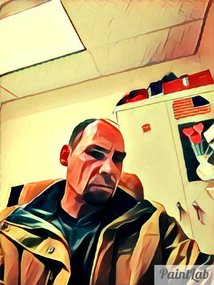 Bio: Matthew Borczon is a nurse and Navy sailor from Erie, Pa. He has two books of poetry out A Clock of human bones from the Yellow Chair review press and Battle lines from Epic Rites Press. His third book ghost train will be out in the summer of 2017 through Weasel press. 3/14/2017 0 Comments Fun Punch by Carla BargerCamila Pastorelli Fun Punch We’d done the act for years. Our big clown shoes slapped dust round the ring as you chased me with a fire hose. A finely tuned orchestra, I’d turn on the final beat and land you a playful sock to the kisser. We called it “Fun Punch” but the fat lady warned us of the dangers of routine. It was great, she said, but eventually I came to want more substance. She stared wistfully at a photo of the thin man who’d left her in order to sell insurance in Hoboken. Later we lay in my trailer. You hung your funny trousers over the bedpost. I swallowed hard, a blue balloon rising in my throat as your fingers inched toward me. I traced the Jersey Turnpike in the air with mine. 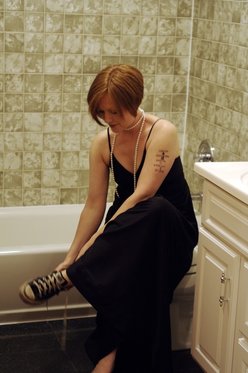 Bio: Carla Barger is a writer and freelance editor. She grew up riding horses in vast open fields and has never quite gotten used to living in cities, which makes her wonder regularly why she continues to do so. Her work has appeared in several literary journals, photography books, art gallery catalogs, and elsewhere. She holds an MFA in Writing from the School of the Art Institute of Chicago. Visit her website at https://carlabarger.wordpress.com. 3/13/2017 0 Comments Two poems by John BerryBig Fat Fly You may have to become a poem someday-- some Spring as I sit in this chair, annoyed by your buzzing thinking of things one could say about you: the grotesque largesse of your bristly blackness, the way you appear out of nowhere it seems to worry the corners of windows and lamps giving me pause to consider if carcasses rot somewhere in these walls, or the ducts, or under the floor. In a middle stanza I would have to describe the pleasure I get by chasing you down with a vacuum. How I shout with glee when its suction has proven too much and its over the rainbow you go where the scarecrows are stuffed with bunnies of dust, the lion knows nothing of courage, and tin men are troubled by rust in their rivets but care not a whit about hearts. And somewhere close to the end I would have to pin on your wings and bump relentlessly into the ceiling then cling with sticky stuff on my feet—just out of reach regarding myself through your many-faceted eyes. Standing Outside the Chapel with Buddha Having a Smoke Sometimes He said You must honor your sadness Hear the singing bowl From afar Notice the voice of the pines Singing their love for the wind Notice that I Am here as well Taking it in. 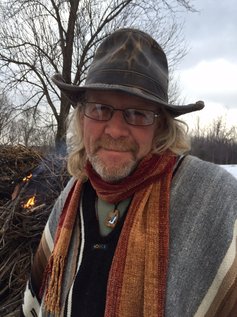 Bio: Currently working on his second volume of poetry, Medicine, John Berry writes from his Winchester Va. home with his beloved wife, Brenda, and their constant yorkie companions, Molly and Lily. When not engaged in writing or his profession as a woodworker and cabinet-maker, John hosts a monthly poetry open-mic and an internet poetry show, The Sock Drawer Poetry Series, on www.winlifetv.com. He is also pursuing a two-year course of study in the energetic healing arts through the Whitewinds/Featherstone Institute of Integrated Energy Medicine and is a Level 2 Reiki practitioner in the Usui Holy Fire tradition. "It starts with a single note" Beckwitt says, "to change a person’s life, influence one’s soul." Everything that made us must be brought out into the open, transformed through song, poetry, art, "we end up creating the things that we needed in our darker times." In her song “One More,” Elisabeth sings about her struggles with addiction, now, five years clean, Beckwitt says "it will always be a part of my life, but all I can hope is that through talking about it and through music I can help anyone who might also be struggling, and continue to heal myself." Having come through a great many things, Beckwitt has found that by creating with the difficulties of our past often we touch the lives of others, giving them something to hear and hold onto in their own dark times. "Then We Do" elisabethbeckwitt.bandcamp.com/album/then-we-do Beckwitt's new album, is an indie pop record packed to the brim with heart, charm and honesty. Inspired by Ingrid Michaelson and Sara Bareilles, Elisabeth makes a noble and lasting contribution to the songwriting community, and lucky for us listeners who long for songs we can relate to, we find plenty to appreciate here. AHC: What has this journey in music, so far, been like for you, the highs and the lows, and what life lessons do you feel you've picked up along the way? Elisabeth: It starts with a single note, a single phrase or a single melody to change a person’s life and to make art an introspective influence to one’s soul. For me, music has been a constant in my life since day one, since the first notes I played on keyboard. Music has always been there for me when I needed it most. I want to write the music that I needed in the darker times of my life, because when I went through them I discovered that you can't do it alone. Throughout my teenage years, I struggled with severe anxiety and depression stemming from childhood abuse. My struggles led me to seek professional psychiatric assistance, where I was eventually diagnosed with a mental disorder. With the help of the people in my psychiatric care specifically my therapist, I was able to make it through a difficult time in my life. It is my hope that by being open about my past and my BPD, I can help to erase the stigma that is oftentimes associated with mental health, and continue healing others and myself along the way. Music has taught me that there is nothing that shouldn’t be talked about, no matter how uncomfortable. What matters most is that you are taking care of yourself and others while healing, growing, learning, educating, and sharing as much love as possible. AHC: What first drew you to music and what was your early musical environment like growing up? Were there pivotal songs for you then that just floored you the moment you heard them? Elisabeth: At age eight, living in my hometown of Lexington, MA, I discovered my love for performance when my parents, my older brother, and I began putting on small concerts for our friends and family. With my mother on violin and brother and father on piano, my love for music, specifically for singing, started to bloom. We had a rule in our house that you always had to play an instrument, so I tried on a few hats before I finally settled on the keyboard to accompany my voice. My parents were heavily influenced by classical music, and my mother was a fan of old-school musical theater. I remember seeing West Side Story as a kid and thinking how beautiful the storytelling was; the music, the acting, the dancing, all coming together to make you feel connected. From that moment on I knew I wanted to use the talent and knowledge my parents had given me to tell my story. AHC: Do you remember the first song that you ever wrote or played? Or that first moment when you picked up a pen and realized that you could create whole worlds just by putting it to paper? Elisabeth: The first song I learned to accompany myself on piano was “Keep Breathing” by Ingrid Michaelson. This song has always been a source of comfort for me. It’s a reminder of the simple fact that sometimes, all you can do is keep breathing. When I turned 18 I tattooed those two words onto my wrist so I will never forget. The first song I ever wrote is a different story…I’m pretty sure I rhymed “you” with “you” and didn’t use any words with more that 4 letters. Growing up as a vocalist, I was always self-conscious that all I could do was imitate other artists, and that I didn’t have a story worth telling. Near the end of my college career I finally started to find my own voice through my own songs, and I fell in love with the possibilities. My ‘breakthrough’ moment in songwriting happened in a parking garage late at night while I was in the middle of a deep and fulfilling cry. The song started pouring out of me, and I remember whipping out my phone and cursing my fingers for not being able to type all the lyrics down. I opened voice memos and recorded my slight idea for melody, and then sat in the car for a couple hours, letting my emotions run wild. That song, “Corner Pieces,” made it onto the 4-song EP (“Back to August”) I recorded before leaving Boston and heading to Nashville to further pursue writing. AHC: Which musicians have you learned the most from? Or writers, artists, filmmakers, teachers/mentors Elisabeth: Ingrid Michaelson has been my biggest musical inspiration. She has a beautiful ability to tell stories with humility, while still maintaining her awkward and quirky personality. She constantly is trying to find light in the world, a quality I strive to have in my own life. I studied Vocal Performance at Berklee College of Music and it wasn’t until my second year that I found the voice teacher of my dreams, Alli Beaudry. I am forever grateful to Alli for showing me that imitation didn’t have to be erased from my voice. I had to learn how to embrace the qualities that made my own sound unique. She was the first person to hear one of my original songs, and she helped encourage me and shape me into the writer I am today. AHC: What do you think makes for a good song, as you're writing and composing, is there a sudden moment when you know you've found the right mix, that perfect angle of light, so to speak? Elisabeth: I always begin a song with lyrics. Growing up I loved creative writing and poetry. I love being able to describe something simple in a new light, and learning new words to expand my personal writing dictionary. I love the excitement of writing a lyric that sends a shiver down your spine. Sometimes the lyrics pour out all at once, like “Corner Pieces” from my EP, or the second song on my debut album entitled “Call Me Chameleon.” When sitting down to write “Call Me Chameleon,” I was looking back at all the relationships I’d had in my life, and I noticed how much I changed aspects of myself to become a mirror image of each person. To better fit into THEIR world. I pretended to take up smoking for a guy, I became obsessed with Joni Mitchell for my first girlfriend (one day I’ll thank her for that!) and then switched to 90s indie rock for my next ex. As I was writing these stories, the Chameleon metaphor fell into my lap and rounded out the song. I finished the bridge with “how many colors will I try, is any of me really mine?” and instantly felt proud. That’s what songwriting is all about for me, being proud of your art. Telling your story, or someone else’s, in a meaningful and relatable way. Not all songs come together that easily; some are long and painful processes of labor and love, but I know I’ve found the perfect angle of light when the story starts writing itself. AHC: Do you consider music to be a type of healing art, the perfect vehicle through which to translate a feeling, a state of rupture/rapture, hope lost and regained? Does the writing and creating of the song save you in the kinds of ways that it saves us, the listener? Elisabeth: Music has always been a healing process for me; a way to showcase an emotion or a struggle, to connect on a basic human level with the people around me. I love when writing helps me process a memory; when I’m able to step outside of the situation and observe it from a different angle, sometimes the memory turns into something else entirely. The song that was hardest for me to write is track four on my album, “One More,” about my struggles with addiction. When I finished writing the song I tried to play it all the way through and had to stop because I was crying too much. I am 5 years clean this year and am so proud of how far I’ve come, and so grateful for all the support and love I’ve received. Addiction will always be a part of my life, but all I can hope is that through talking about it and through music I can help anyone who might also be struggling, and continue to heal myself. AHC: What are your fondest musical memories? In your house? In your neighborhood or town? On-tour, on-the-road? Elisabeth: When I was little I used to make up little songs and run around the house singing them. Most of the time the songs centered around my name, repeating “my name is Elisabeth” on various melodies. My dad likes to remind me of this from time to time, joking that those songs were some of my best work. It was so comforting to live in a musical household; to listen to my father playing beautiful sonatas on the piano, to hear my mother practicing for her orchestra concert, to watch my brother grow as a musician. Whatever hardships we faced, music was always a common thread tying us together. Even now, as we are all living separate lives, I love being able to make music for a living and thank them over and over again for instilling this passion in my heart. I released my debut album, “Then We Do,” at the end of 2016 and celebrated the release with a party at The East Room with family, friends, and a few of my favorite Nashville artists. Aaron Patrick opened the night with his piano-based contemporary country style, followed up by Abigail Flowers smooth jazz and gorgeous melodies, and finally Cierra Louise and Sean Trainor performed together in a mesmerizing set. Seeing how passionately they performed only increased my musical high as my band and I took the stage. We performed the entire album, and I was in a state of joy and gratitude for the entire night, a feeling and experience I will never forget. AHC: When you set out to write a song, how much does 'where the world is' in its current moment, culturally, politically, otherwise, influence the kinds of stories you set out to tell? Elisabeth: It’s impossible to not lose hope in the face of where our world is right now. There is so much hate, so much intolerance, so little understanding, and because of where technology is today, it is all laid out right in front of our faces. It is a fact of life that there will always be suffering. Music is the best way I know how to spread love, and to shed light on some of the issues that people would rather ignore; Addiction, identity, sexual orientation, and hopelessness to name a few. These are the issues that I most closely relate to, but that does not stop me from seeing the bigger picture of suffering. Sitting down to write I am constantly feeling the weight of the world, the failing system that is steadily unraveling. All I can do is hope that my little piece of insight into the world, and how beautiful it truly can be, will help broaden the mind of someone who is closed off. AHC: Do you have any words of advice for other musicians and singer-songwriters out there who are just starting out and trying to find their voice and their way in this world? What are the kinds of things that you tell yourself when you begin to have doubts or are struggling with the creative process? Elisabeth: This business is not easy. There are endless moments where I want to give up, where it would be easier to walk away. But the fire inside of me, the one I got from my parents, refuses to let me. If you are lucky enough in this life to find something you are passionate about, something that pushes you to constantly be bettering yourself, hold onto it as tightly as you can. We all experience moments of doubt, but those are the moments that define us, that make us human. Writers block happens; sometimes the words refuse to come and time keeps moving on which can feel overwhelming. There is so much pressure to generate content, for instant gratification, that sometimes the joy in music making can get lost. When this happens, I take a break. I listen to music that I love, I spend time with my family, I lose myself in another hobby, and then suddenly inspiration strikes. Timing is everything. AHC: Recently you released your debut album "Then We Do" back in December, could you talk about this project and about what lies ahead for you? 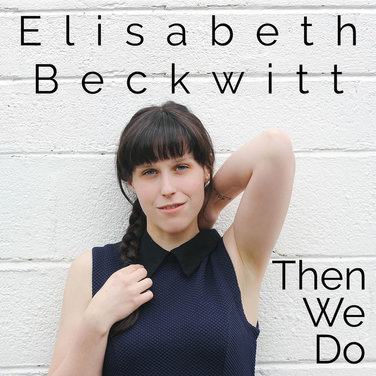
Elisabeth: “Then We Do” was an extremely fulfilling and enjoyable project to work on. I worked with an incredible team of producers at Big Punch Music in Nashville, as well as a phenomenally talented band led by guitarist Denny Joist. We approached Tommy and Rob at Big Punch studio in early 2016 with the 11 songs I had been working on for two years, and they genuinely were excited to work together. From the first brainstorming session, I knew this was going to be a project I would be proud of for the rest of my life. We brought the band into the studio and I was blown away by the immeasurable amount of talent and life they brought to my songs. It is an indescribable feeling; hearing the songs I wrote on piano come to life. I couldn’t be happier with the final project, and I am forever thankful to my team for making it a reality.
In anticipation for the album release, we released two music videos for my singles “Kiss Her” and “Not Your Nashville,” both filmed by Randy Alan Shaffer of Vibe Entertainment Nashville. We had so much fun recording both videos and are currently working on a music video for “One More” staring a dancer friend of mine. She choreographed a hauntingly beautiful piece, and it will be released on April 14th, 2017. I will be embarking on my first tour to support the video from March-June, and am very excited! We will be hitting a lot of the Midwest, check out my website for details and hopefully we will be playing a city near you. I have also started working with an artist development company here in Nashville, AGD Entertainment, and am thrilled that we are working together to make 2017 my best year yet! For more visit www.elisabethbeckwitt.com/ Photography by Kate McGaffin 3/12/2017 0 Comments Four poems by Mark YoungA line from René Magritte It's a bleak view of hu- manity. Facing eco- logical collapse, Freddo, plus a whole host of Cadbury characters, went beyond science to shine a spotlight on transgender issues, using their jittery art-punk guitar buzz to offer a frayed life-line to the most vulnerable people. The snowoman wonders what the world offers them outside of that. An ability to handle subzero temper- atures? They have that already. Imprism’d Given the chance to find what colors lie inside white light the kaleidoscope decides on blue. People get up to dance, the cellist cannot hear the morning for the motorcycles. No- thing coheres. It is summer in Iceland. anthracite idolatry Copernicus' work is nearing its definitive form. It's a sprawling, steampunk affair, influenced by rumor, disc- redited science, even by a gaggle of corporate CEOs pretending to be cult leaders in their fluoro training jackets. a brief note on bestiality In the last blooming of this lack- luster night animals take on the shape of wo/men & go looking for an angel to fuck. There are congressional variations, but all three species take pleasure from the act, still taste it in the morning. --------------------------------- Image- karin & the camera 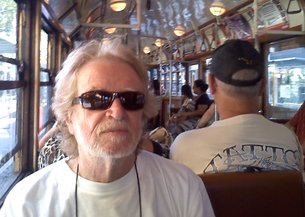 Bio: Mark Young lives in a small town in North Queensland in Australia, & has been publishing poetry for almost sixty years. He is the author of forty books, primarily text poetry but also including speculative fiction, vispo, & art history. His work has been widely anthologized, & his essays & poetry translated into a number of languages. His most recent books are Mineral Terpsichore & Ley Lines, both from gradient books of Finland, & The Chorus of the Sphinxes, from Moria Books in Chicago. A new collection, some more strange meteorites, came out from Meritage & i.e. Press, California / New York, in early 2017. "In the 12 years she has toured the world with Lake Street Dive, Kearney has fine-tuned many things: adjusting to jet lag, sleeping in moving vehicles, hauling her acoustic bass up and down stairs, keeping her cool in front of cameras, thousands of people and personal heroes. But the skill she has honed most obsessively is songwriting. “For me it's the best part of music,” says Kearney. “That's the best feeling: after those few hours that you spend working on the song, and you have this thing that you've made, and you’re like, ‘Wow. This didn’t exist before. I’m so excited about what just happened.’" Now, at long last, Kearney steps into the spotlight with her first solo effort, the wry, big-hearted pop album, Won’t Let You Down. The record, like its title, promises not to disappoint." "I’ve loved music my entire life, like from a very young age it was something my mom would bribe me with to get me to take naps" Bridget writes of her early encounters with the muse of song. Music is full of power, something Kearney sees as transcending language and cultural barriers in its ability to hit something more direct in us, "We connect through music and from there, we don’t need many words to understand each other." The process of creation is "very hard to define" Kearney says, "and certainly hard to recreate. Hemingway would say: “To get started, write one true sentence.” And the way that I understand that is that the best advice is to start with a fragment that you really believe in and that really makes you feel something. Whether that is lyrical, rhythmic, melodic, harmonic, what have you, doesn’t matter. So long as it has a strong, true, sturdy foundation of an idea that you can dissect, analyze, develop and rebuild into something whole and new." On Won’t Let You Down, bridgetkearney.bandcamp.com/ which drops March 24th on Signature Sounds, buoyancy is always tempered by melancholy. But just as often, wistfulness is undercut by a twinkle in the eye. It’s “this cross section of sadness and humor,” says Kearney. “When you're getting over crying, and you just start to laugh.” AHC: What has this journey in music, so far, been like for you, the highs and the lows, and what life lessons do you feel you've picked up along the way? Bridget: I’ve loved music my entire life, like from a very young age it was something my mom would bribe me with to get me to take naps. She’d say, if you lie down on your bed you get to listen to Raffi and I would do it. And it’s been a really important part of my life ever since then. Working hard at music and getting better at music instilled confidence in me as a young person, because I knew it was something I could do well. It’s also always been a great bridge to friendships. Music can be a very social activity, whether it’s playing in bands or going to shows or just talking to people about what kind of music they like. Many of my best friends are people that I have at one time or another played music with. It’s helped connect me to people I otherwise would have had a hard time getting to know, including many people from other parts of the world, whose language I don’t speak. We can connect through making music together and from there, we don’t need many words to understand each other. AHC: What first drew you to music and what was your early musical environment like growing up? Were there pivotal songs for you then that just floored you the moment you heard them? Bridget: My parents played a lot of music around the house, like Paul Simon and James Taylor. Also I had two older siblings and so they got to start taking piano lessons and singing the church choir before I did and I watched them and was so excited to get started. When I was in kindergarten I got to start taking piano lessons and I enjoyed it but my teacher would scold me a lot for just learning the songs by ear from hearing her play them instead of really learning to read music. I eventually learned to read music but also I think learning music by ear is a really valuable skill because it means that you’ve internalized it. Probably my first real obsession with a band was with The Beatles in around 4th or 5th grade. It was when The Beatles Anthology was showing on television so I was learning their story and hearing all their records and just fell in love with their music. AHC: Do you remember the first song that you ever wrote or played? Or that first moment when you picked up a pen and realized that you could create whole worlds just by putting it to paper? Bridget: I really liked to dink around on the piano and make little songs—a lot more than I like practicing what I was supposed to be practicing. My whole family remembers the first “song” I ever wrote because I would play it incessantly. It was a kind of bluesy swing baseline with a melody over top of it and the lyrics were “walking along in the forest, singing a song, with a chorus too.” Profound! In junior high I started a rock band that I played electric bass in with a guitarist and a drummer and that was when I discovered writing love songs. They are pretty embarrassing to reflect on now but like anything, you’ll get better at something if you keep doing it, and I’m glad I got those songs out early! That was also when songwriting became an activity that helped me reflect on what was going on in my life, it’s always been somewhat therapeutic for me—both listening to music and writing it. AHC: Which musicians have you learned the most from? Or writers, artists, filmmakers etc? Bridget: For musicians, I’d say: The Beatles, Elliott Smith, Carole King, Beck, The Jackson Five, James Jamerson, Paul Simon, Bach and then of course great teachers of mine like Diana Gannett, Mark Urness, Allan Chase, Bob Moses and Danilo Perez. For writers, I think I learned a lot from Hemingway and Salinger, who both can say a lot and make you feel a lot with very little. AHC: What do you think makes for a good song, as you're writing and composing, is there a sudden moment when you know you've found the right mix, that perfect angle of light, so to speak? Bridget: Yes, there is a turning point when writing songs, where it goes from being an experiment to a song. It’s very hard to define and certainly hard to recreate. Hemingway would say: “To get started, write one true sentence.” And the way that I understand that is that the best advice is to start with a fragment that you really believe in and that really makes you feel something. Whether that is lyrical, rhythmic, melodic, harmonic, what have you, doesn’t matter. Just that it is a strong, true, sturdy foundation of an idea that you can dissect, analyze, develop and rebuild into something whole and new. AHC: Do you consider music to be a type of healing art, the perfect vehicle through which to translate a feeling, a state of rupture/rapture, hope lost and regained? Does the writing and creating of the song save you in the kinds of ways that it saves us, the listener? Bridget: I consider music to be one of the strongest gateways humans have to feelings—feelings of all kinds, happy, sad, angry, jealous, regretful, hopeful, etc. So, if opening ourselves up emotionally is good for us (and I think it is) then definitely music is healing. AHC: What are your fondest musical memories? In your house? In your neighborhood or town? On-tour, on-the-road? Bridget: My fondest musical memories are usually of something spontaneous or new. Whether it is something exciting that someone tries on stage with me that I’ve never heard them do before, or working up a new song for the first time, or playing with a group of people I’ve never played with before. In college I got to go with a group of students to the Panama Jazz Festival in Panama City. On the last day of the festival, all of the musicians that were playing there had a meal together in a local restaurant. One of the musicians, Fransisco Mela started showing the drummer in my group, Richie Barshay, and our teacher Danilo Perez a groove by tapping it on his shoulders. Richie and Danilo started tapping the groove out on the table and people around them started picking up forks and knives and getting into it. Eventually the whole room erupted into this joyous percussion group of silverware and salt and pepper shakers and blowing on bottle tops. That was maybe one of my fondest musical memories. I’ve also had some incredibly deep experiences with music alone. I listen to music on headphones a lot, when I’m running or riding the subway. It can be so powerful and just take over your whole body. The thrill of discovery is a huge thing for me too. I’ve done some writing sessions alone in the woods of Maine, where I’ll be up there for 5 days or so just writing all day and all night and I’ll get into a zone where everything is all the sudden elevated to this other level and I’ll just laugh out loud with joy at the idea that just came to me. AHC: When you set out to write a song, how much does 'where the world is' in its current moment, culturally, politically, otherwise, influence the kinds of stories you set out to tell? Bridget: To be honest, it hasn’t influenced me that much until recently. I have felt in the past like I wasn’t informed enough about something topical to write about it, or that it wasn’t my place to write about issues that didn’t directly affect me. Now that we are in a moment of crisis in our country, and in the world, I am becoming more passionate about political and social issues, and even if they don’t personally affect me, I feel personally moved enough by what’s going to to write about it in a way that feels true and urgent and real. It’s kind of all I can write about right now! AHC: Do you have any words of advice for other musicians and singer-songwriters out there who are just starting out and trying to find their voice and their way in this world? What are the kinds of things that you tell yourself when you begin to have doubts or are struggling with the creative process? Bridget: The creative process is very unpredictable. The best thing you can do is keep doing it and you will get better! It is like fishing (or how I imagine fishing is…I do not fish…) You’re never guaranteed to catch a fish, but if you keep that pole in the water for longer, you’ll increase your chances. Also, I advise to listen to your instincts and focus on the things that you really like. Find the things you like in music and then try to understand exactly what you like about them so much and then make more songs that have that thing in it, whatever it may be. AHC: Could you talk some about your new record Won’t Let You Down? Has making this record, apart from Lake Street Dive, been on your mind for a while now, and how long did it take you to write and conceive this album? 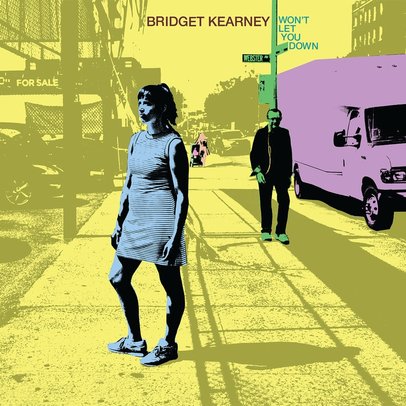
Bridget: So, around 2013 I was making a lot of time for writing and had a bunch of songs hanging around with no real “home” yet. Robin MacMillan was a friend of mine who I had always really admired musically but hadn’t gotten the chance to work with yet. He heard some of the demos that I had made of these new songs and was really excited about the songs and also about my demos themselves and the music that I was able to create with my voice and by myself. He gave me sort of an open invitation to come work with him in his studio in Brooklyn whenever I had down time from Lake Street Dive. This was a dream offer for me because with the small amount of time that we have off from LSD, it is kind of intimidating to take on a full-on other project, like making a solo record. But the idea of coming into the studio for a day or two whenever it was possible and making music with Robin sounded PERFECT and indeed it was. It was just pure joy of creation, no game plan for what we were gonna do with the recordings, no timeline of finishing the project, just time that we spent together in the studio working on my music. As it turned out we worked together really well, I loved his ideas for how to produce the songs and the sounds he was getting and it was really fun to be in the studio with him. So we just kept doing it! And eventually we had 8 songs and I said, “let’s make 2 more songs and then we’ll have a full record!” It is a really rare and special thing in the music industry to get to make a record this way, because generally you have to consider things like who your target market is, what the best time of year to put a record out is, getting a new record out so that you can put bread on the table, etc and those things can get in the way of making the record that you really want to make. So I would say this record was truly the record I wanted to make and I feel really blessed that I got to make it!
For more, including upcoming tour dates with Margaret Glaspy on select dates, Benjamin Lazar Davis (Kearney’s duo partner for the BAWA E.P. recorded in Accra, Ghana and Cuddle Magic) Sarah K. Pedonotti (Lip Talk, Okkervil River), and Alwyn Robinson (Sugar Sugar, Leftover Salmon) visit www.bridgetkearney.com/ |
AuthorWrite something about yourself. No need to be fancy, just an overview. Archives
April 2024
Categories |
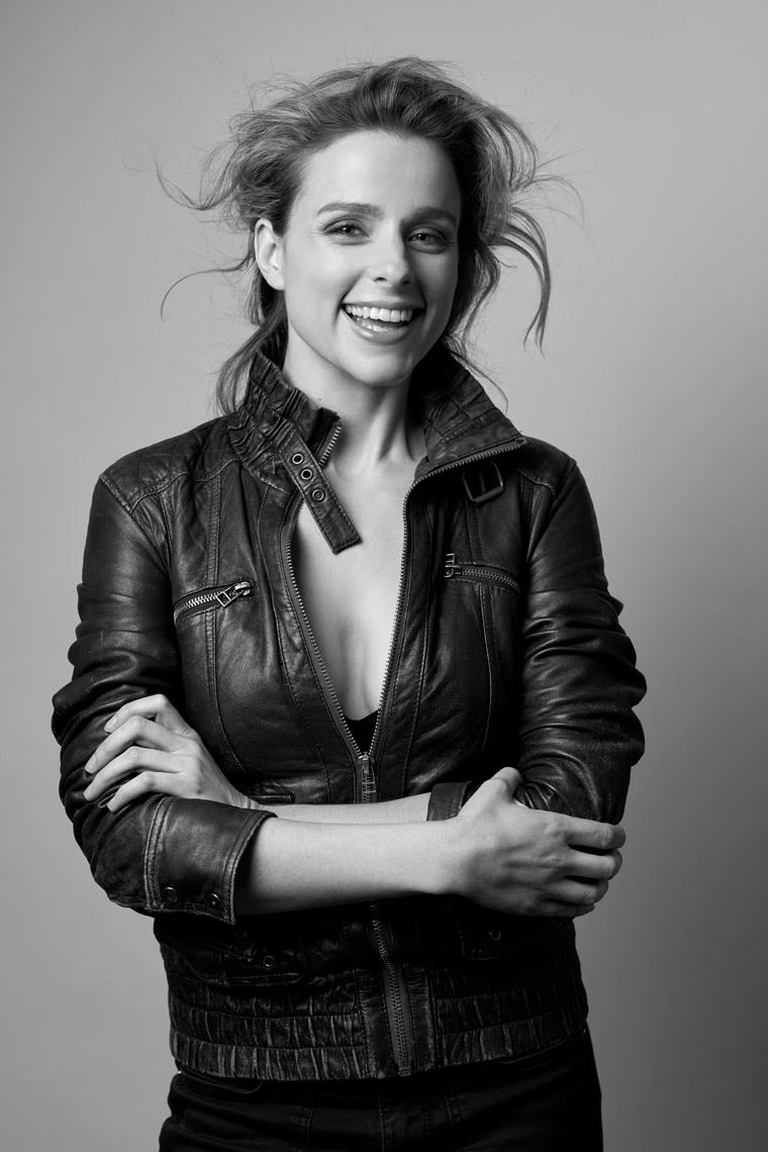
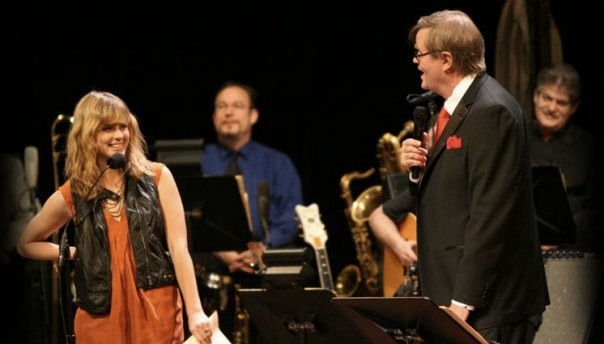
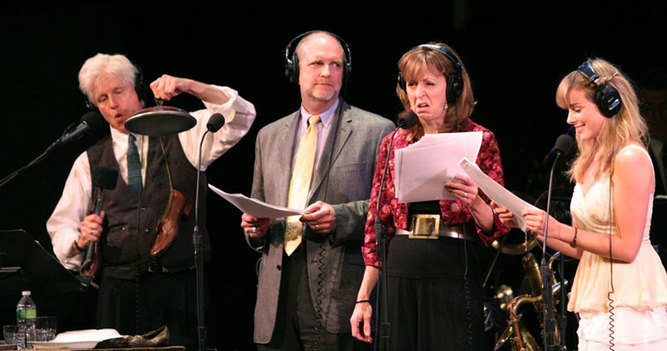
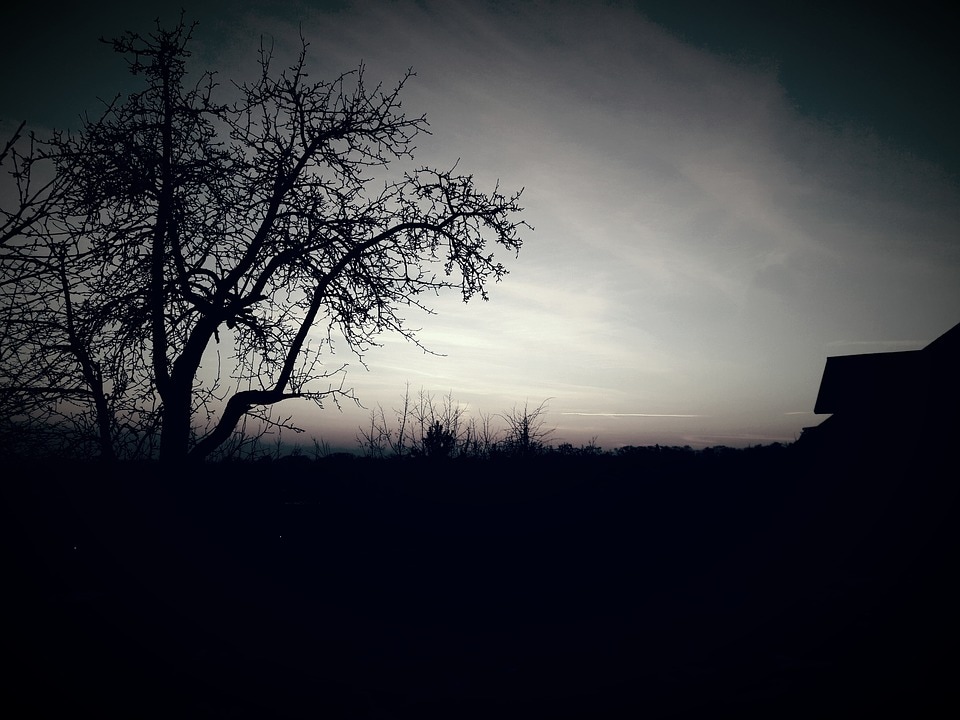
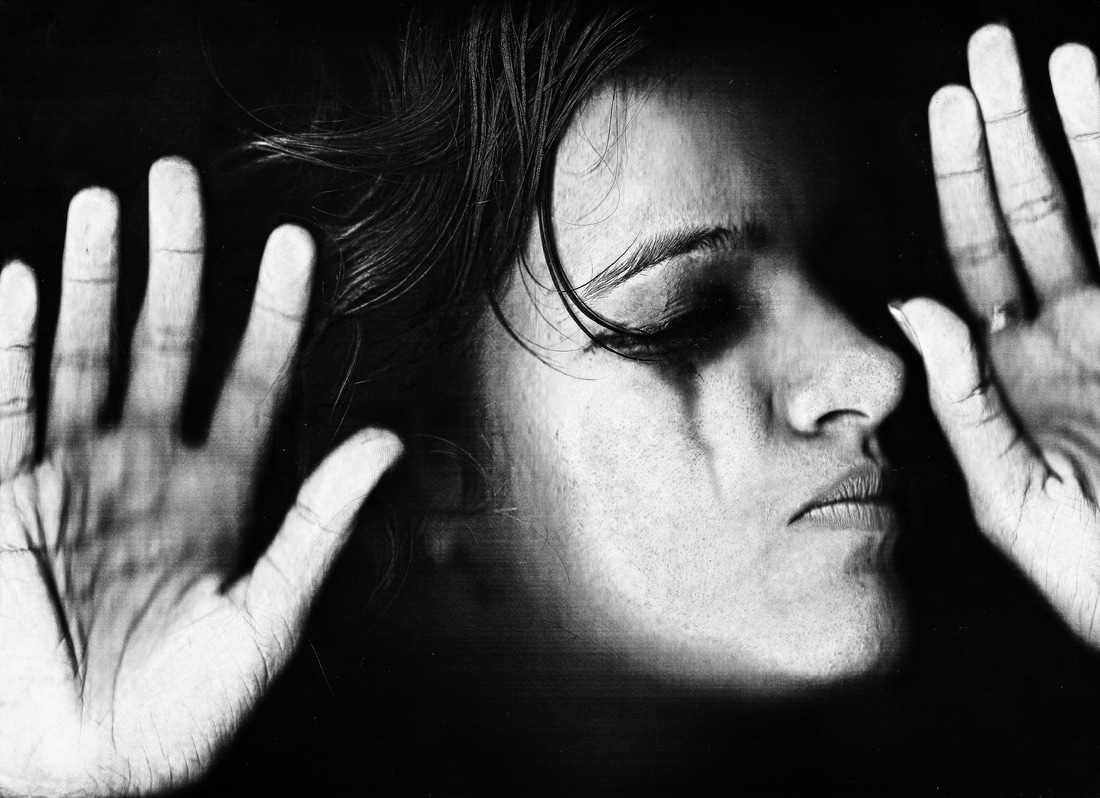
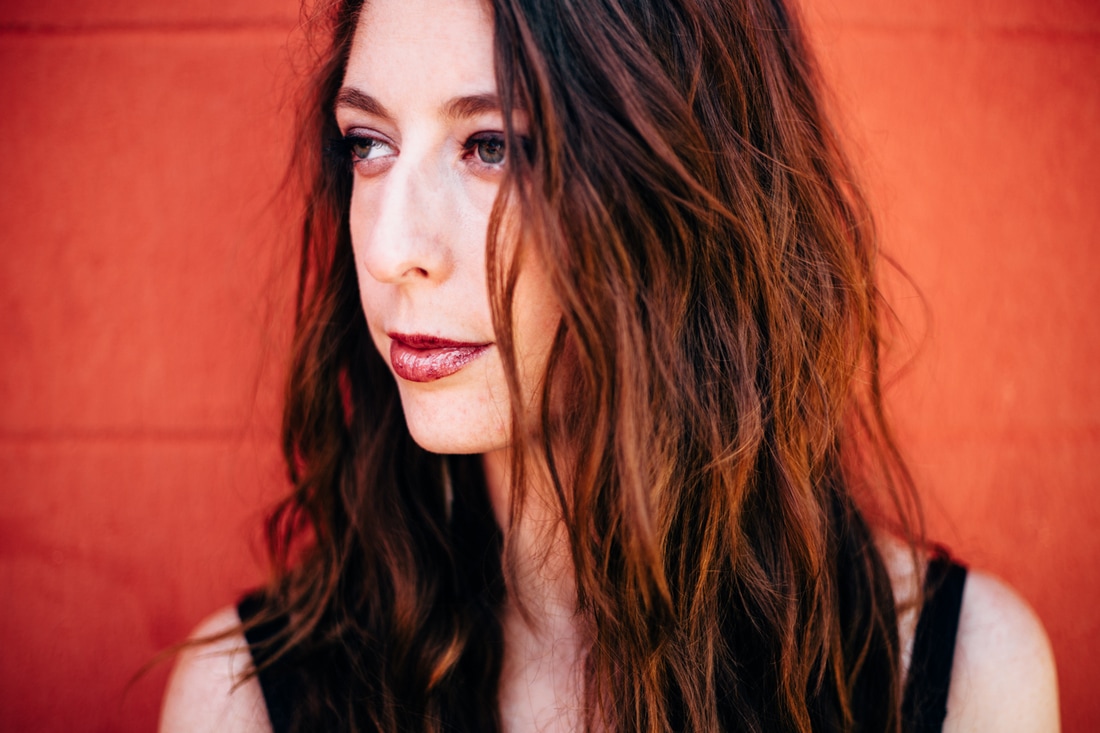
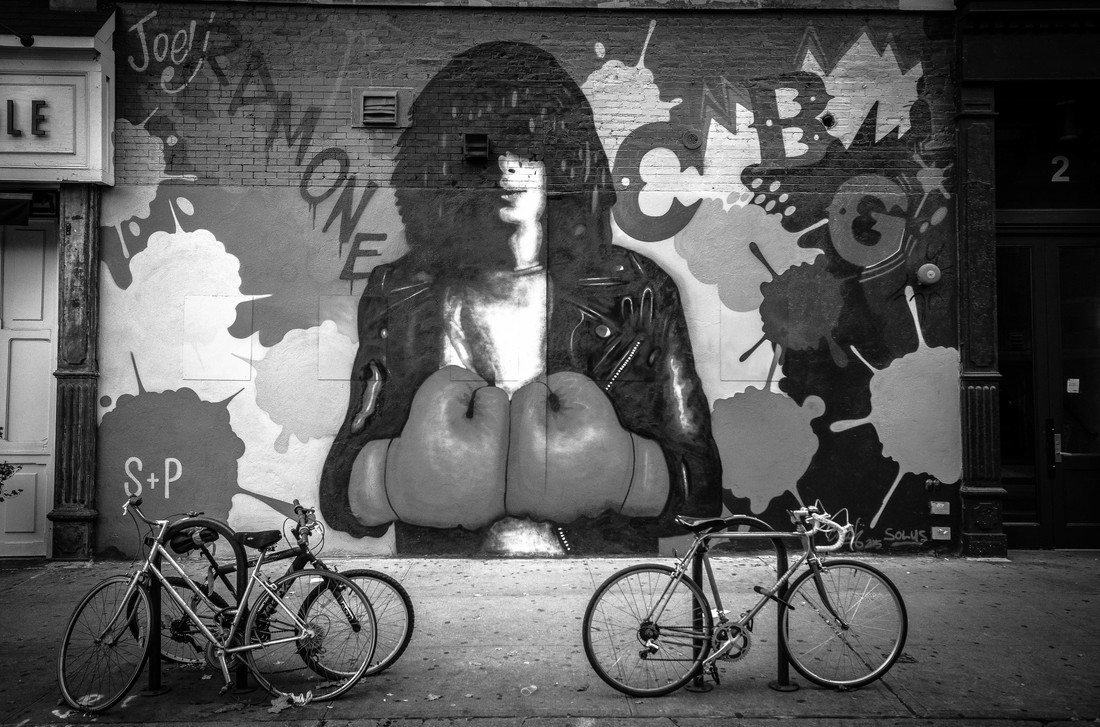
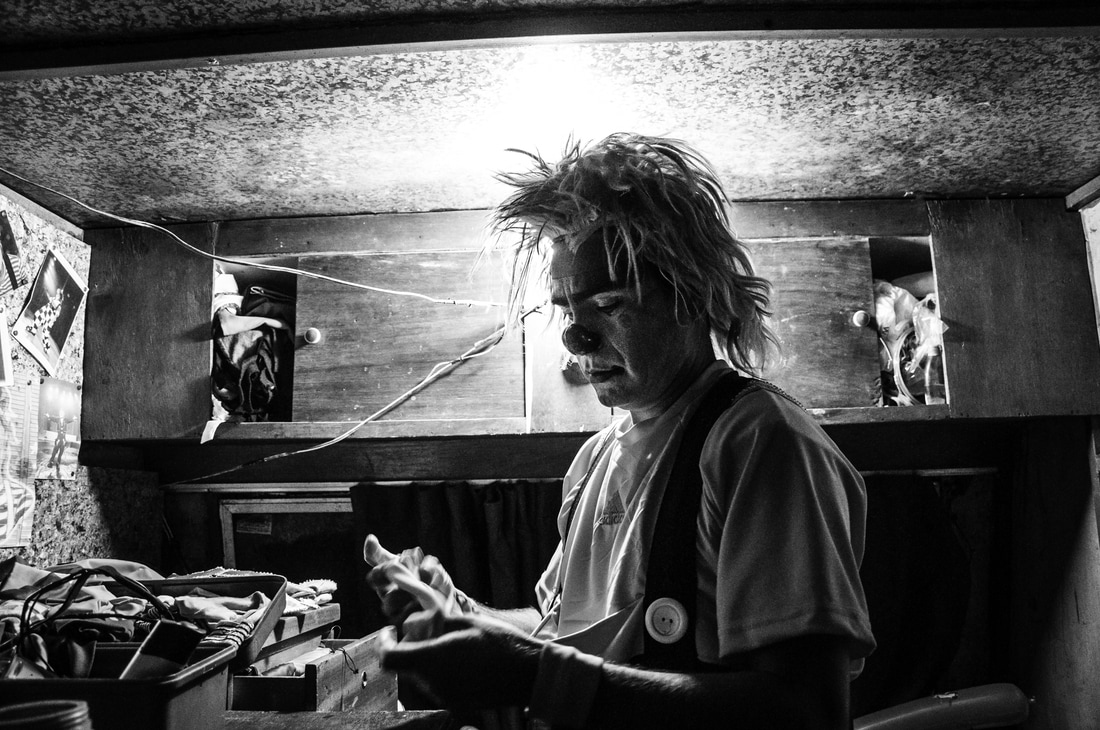
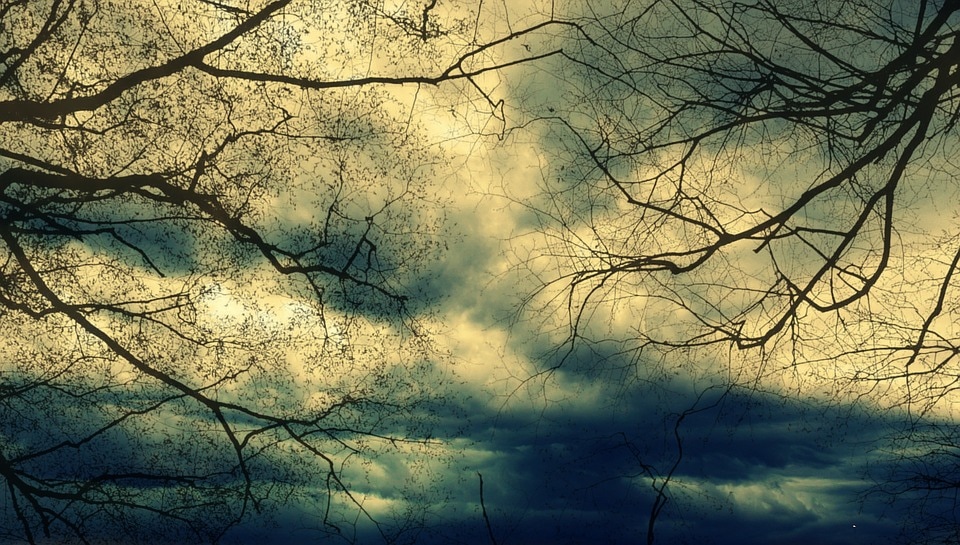
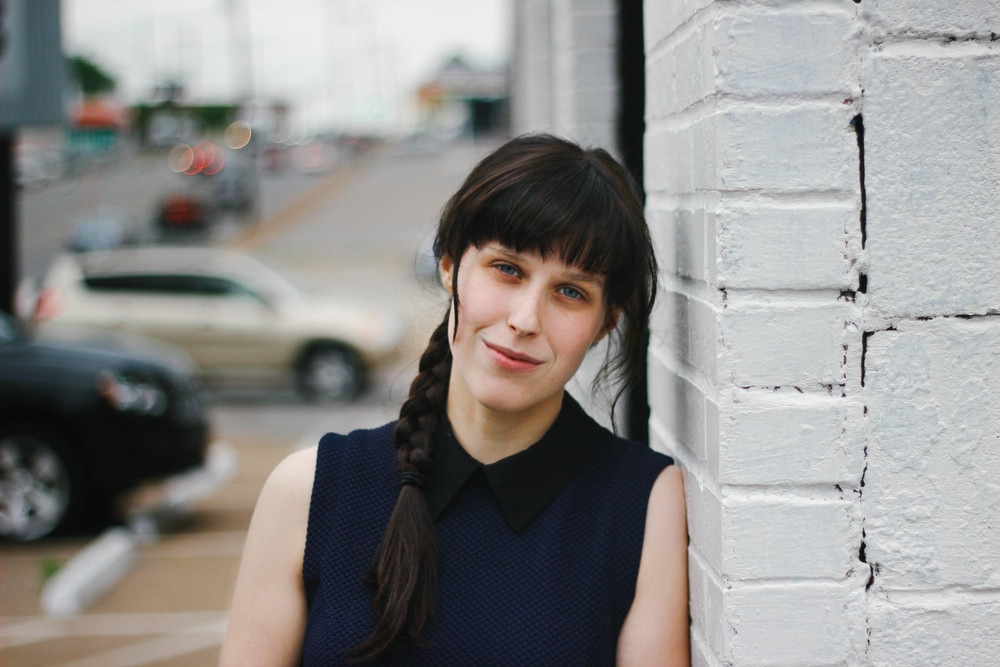
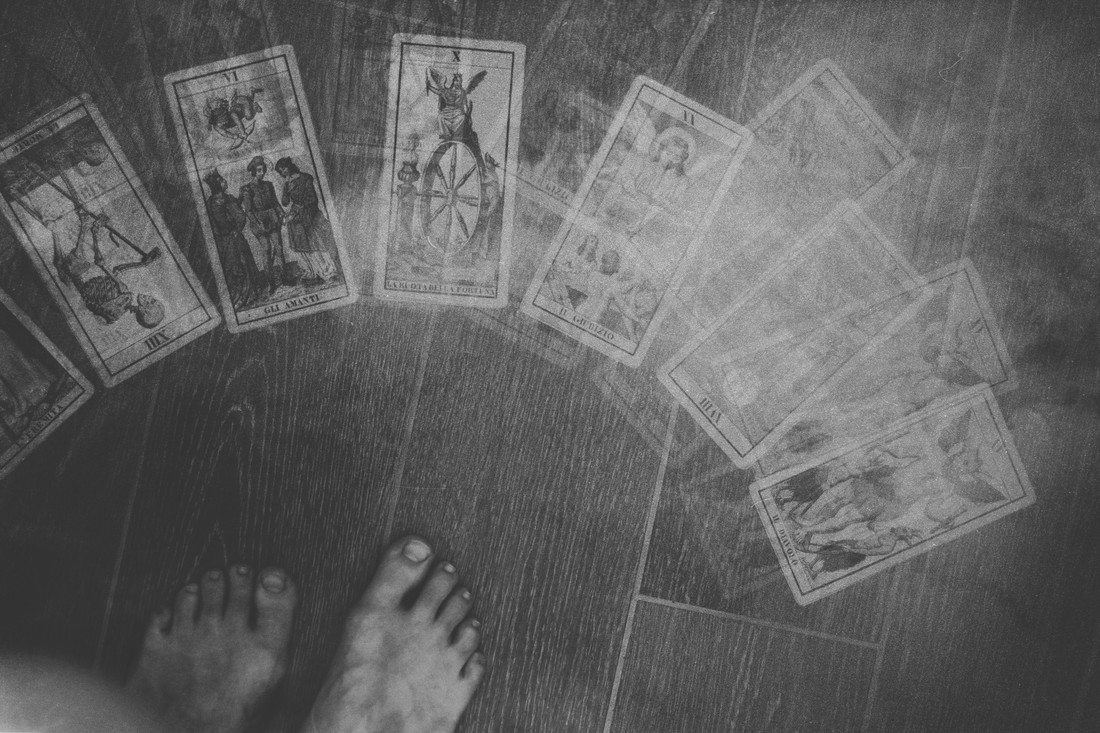
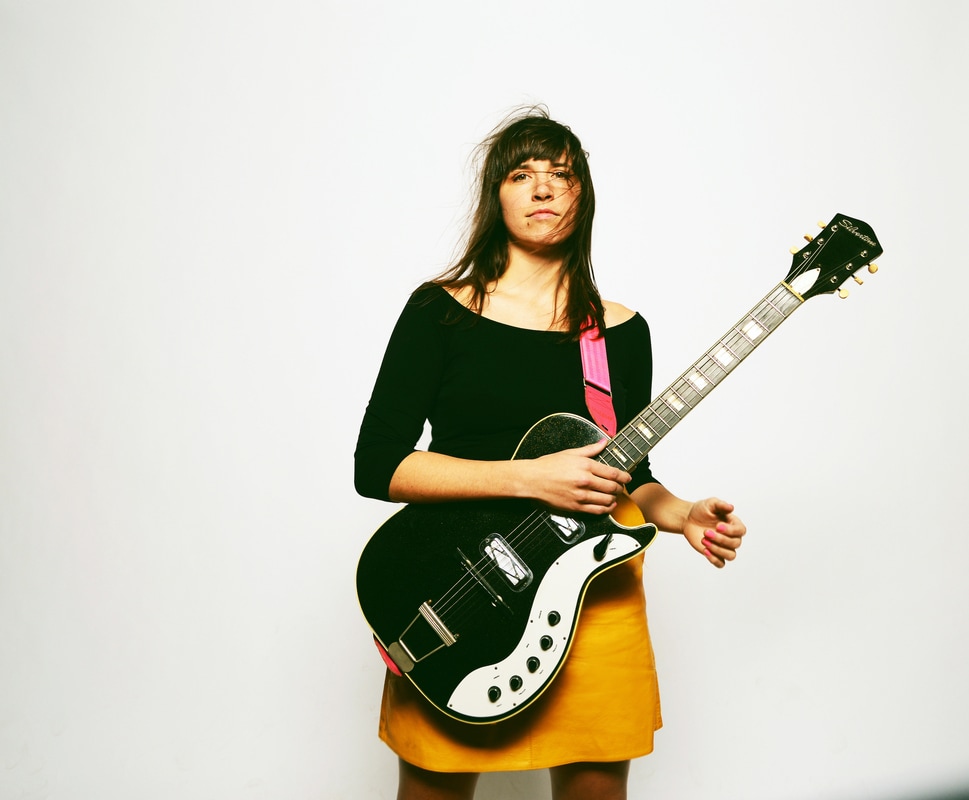
 RSS Feed
RSS Feed
